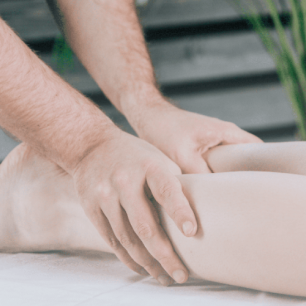ENG

English
Bahasa Indonesia
8 MAY 2023 • TIPS
Know About Pinched Nerves
Contents
What is the definition of Pinched Nerves?
Pinched Nerves, or in medical terms it is called HNP (Herniated Nucleus Pulposus), is a condition in which the spinal joint pads protrude, this can cause a pinched nerve condition. There are many causes of pinched nerves such as injury, doing sports activities that are too heavy, excessive weight, or obesity is also one of the causes of pinched nerves because it can compress the nerves contained in the body.
Symptoms felt by people with HNP
There are several locations where HNP most often occurs, such as in the waist (lumbar), neck (cervical) and the least affected part of HNP is the back (thoracal). The following are the symptoms experienced by people with HNP:
-Tingling that spreads to the hands or feet
-Neck or low back pain
-Limb weakness/paralysis
-Difficulty holding defecation or urination
Do people with HNP have to undergo surgery?
80-85% of HNP cases can be treated without surgery, but 15-20% of them require surgery. Patients are often concerned about the risk of collection in spinal surgery including the lumbar section. Please note that the levels that are often affected by HNP in the lumbar region are the L45 and L5SI levels. At the L45 and L5S1 levels of surgery, there are no nerves that move the thigh and knee muscles, so theoretically it is almost impossible to have paralysis of the lower half of the body as feared by patients in general. With the right indication and good working techniques, the success rate of PELD surgery can reach 98%.
This article is a collaboration between OONA and EMC Hospital Tangerang
Related Posts


.png)
.png)
